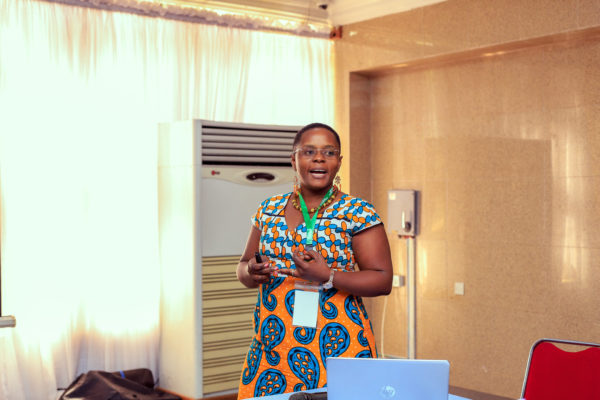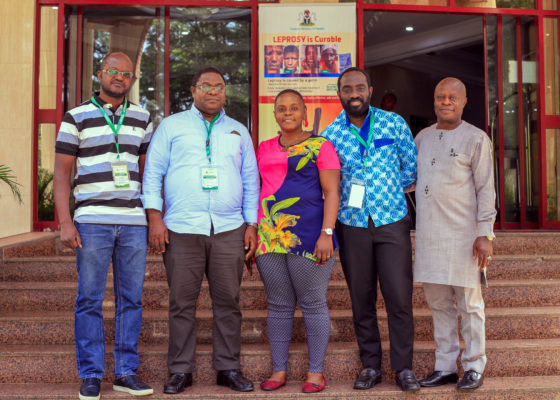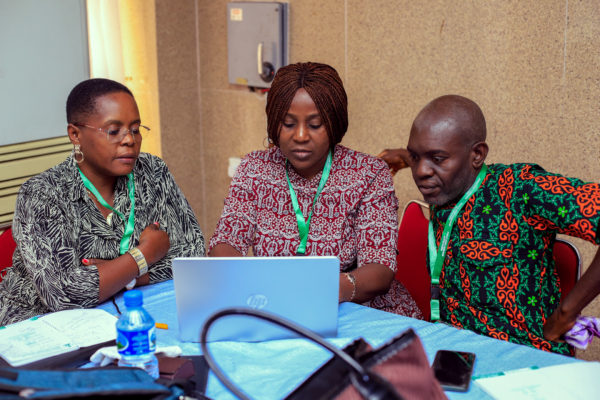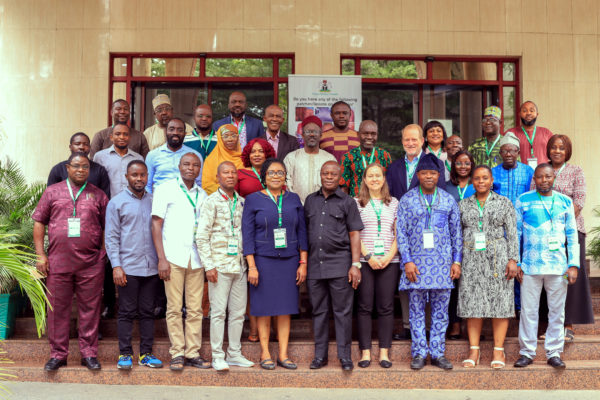What was your experience of implementing the country review?
Participating in the country review for the Nigeria Leprosy and Buruli Ulcer (BU) Programme was a great learning opportunity. The other three reviewers had a medical background in leprosy and BU, while I brought my knowledge and experience in community development, disability, and rehabilitation to the team.
I visited North Central Nigeria, specifically the states of Benue and Nasarawa. I visited leprosy referral health facilities and interacted with people affected by leprosy, health personnel, some local leaders, and community members. I worked closely with the program manager of the Leprosy and BU Programme, as well as a TB and Leprosy Supervisor from a state in Southern Nigeria.
What challenges and opportunities to reduce leprosy stigma did you identify through the country review?
Despite the high prevalence of leprosy and BU in Nigeria, there is limited government investment in the program. The program is largely dependent on ILEP partners. In most states, the people affected by leprosy hardly participate in disability programs and mainstream community programs. Poverty remains a major barrier for persons affected by leprosy and BU. Coordination of advocacy efforts is also needed.
Nigeria has strong partners in ILEP organizations and a number of International Disability and Development Consortium (IDDC) partners who promote disability inclusion. Nigeria’s TB program could be another strong partner. TB is well-funded, and leprosy activities could be integrated with TB activities.
There are also many opportunities to advance advocacy in Nigeria. The country passed the Discrimination Against Persons with Disabilities (Prohibition) Act of 2018, which ensures the inclusion of persons with disabilities in society. There is an opportunity to mainstream leprosy and BU into existing disability inclusion efforts. We also identified opportunities to train persons affected by leprosy in self-care and livelihood development. Peer counseling and collective advocacy can benefit communities of persons affected and strengthen community development projects.
What challenges and opportunities to improve gender equity did you identify through the country review?
The literacy rate for women in Nigeria is low—about 35 percent. This rate is even lower for women who experience leprosy ad BU because they also face poverty and social exclusion due to disease-related stigma. Despite the existence of policies focused on gender equity in Nigeria, the social participation of women and girls affected by leprosy and BU remains low.
There are opportunities to improve gender equity for women and girls affected by leprosy and BU. Nigeria passed a National Gender Policy in 2006 and renewed it in 2021. Its original aim was to incorporate gender equality in economic and national development plans. Since 2021, the policy includes new standards for the gender equity mandate.
Additionally, several civil society organizations could be engaged in gender equity efforts to improve the inclusion and participation of women and girls affected by leprosy and BU.
How does Nigeria’s roadmap respond to the challenges and opportunities you observed in the field?
Most of the aspects mentioned above were indicated in the national Zero Leprosy Roadmap. Together with partners, we developed it based on our findings, immediately following the review.




